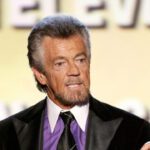Morgan Freeman, an esteemed American actor, is renowned for his commanding presence, deep resonant voice, and impressive versatility on the screen. Born on June 1, 1937, in Memphis, Tennessee, Freeman’s journey to becoming one of Hollywood’s most beloved actors was marked by perseverance, talent, and a passion for the craft. Over the span of his career, Freeman has received numerous accolades, including an Academy Award, a Golden Globe, and a Screen Actors Guild Award, among others. Beyond his acting prowess, Freeman has also made significant contributions to society through philanthropy and activism. This biography aims to delve into the life, achievements, and enduring legacy of Morgan Freeman, a true icon of the American entertainment industry.
Chapter 1: Early Life and Influences
In this chapter, we explore Freeman’s formative years, tracing his roots from his birthplace in Memphis to his childhood experiences. We delve into his early exposure to the arts, his family background, and the influences that sparked his interest in acting and storytelling. From his experiences in school plays to his discovery of the power of words, this chapter paints a picture of the young Morgan Freeman’s journey toward his future career in acting.
Chapter 2: The Pursuit of Acting
This chapter delves into Freeman’s early career, his decision to pursue acting professionally, and the challenges he faced along the way. From his humble beginnings in community theater to his breakthrough on the New York stage, we witness Freeman’s determination to carve a path in the competitive world of acting. We also explore his early film and television roles, showcasing his ability to captivate audiences with his distinctive voice and compelling performances.
Chapter 3: Breakthrough Roles
In this chapter, we examine the pivotal roles that propelled Freeman to widespread recognition and acclaim. From his role as Hoke Colburn in “Driving Miss Daisy” to his unforgettable portrayal of Red in “The Shawshank Redemption,” we delve into the characters that solidified Freeman’s reputation as a masterful actor. We also explore his collaborations with renowned directors and co-stars that further elevated his status in the industry.
Chapter 4: The Voice of Authority
Freeman’s deep, resonant voice has become synonymous with wisdom and authority. In this chapter, we explore how his unique vocal talents have shaped his career, opening doors to a wide range of roles. From his narration work in documentaries and commercials to his portrayal of authoritative figures in films like “Seven” and “Deep Impact,” we delve into the ways in which Freeman’s voice has become an essential part of his on-screen persona.
Chapter 5: Legacy and Impact
In the final chapter, we reflect on Freeman’s enduring legacy and the impact he has made on the American entertainment industry. We discuss his achievements as an actor, his contributions to diversity in Hollywood, and his commitment to philanthropy and activism. We also examine the lasting influence of Freeman’s work on future generations of actors and filmmakers, ensuring that his contributions to the world of cinema will continue to be celebrated for years to come.
Chapter 1: Early Life and Influences
Morgan Freeman was born on June 1, 1937, in Memphis, Tennessee, to Mayme Edna and Morgan Porterfield Freeman Sr. His father worked as a barber, while his mother was a schoolteacher. Freeman’s early years were marked by the challenges of growing up in a racially segregated society, where opportunities for African Americans were limited.
From a young age, Freeman displayed a natural inclination towards the arts. He developed an early interest in acting and storytelling, which was nurtured by his grandmother, who was a talented storyteller herself. Freeman often listened intently to her tales and marveled at her ability to captivate listeners with her words.
Freeman’s exposure to the performing arts continued during his time at Broad Street High School, where he participated in school plays and honed his acting skills. Despite facing racial barriers, Freeman’s talent was undeniable, and he earned a reputation for his ability to command the stage.
However, the road to success was not without its challenges. After high school, Freeman briefly joined the United States Air Force but soon realized that his passion lay in acting. He decided to pursue his dreams and moved to Los Angeles in the mid-1950s, hoping to find opportunities in the entertainment industry.
In Los Angeles, Freeman faced the realities of the competitive acting scene. He struggled to find significant roles and faced financial hardships. Undeterred, he took on various jobs, including working as a transcript clerk at Los Angeles Community College. During this time, Freeman continued to pursue his acting ambitions by taking acting classes and auditioning for theater roles.
Freeman’s breakthrough came when he joined the renowned Pasadena Playhouse, a prestigious acting school and theater company. At the Playhouse, he honed his craft, learning from seasoned professionals and gaining valuable experience on stage. The training he received at the Playhouse proved to be instrumental in shaping his acting abilities and establishing a solid foundation for his future career.
In addition to his formal training, Freeman drew inspiration from the works of influential actors and performers. He admired the likes of Sidney Poitier, Harry Belafonte, and James Earl Jones, who had achieved success in an industry that offered limited opportunities for African Americans. Their performances inspired Freeman to push boundaries and strive for excellence, despite the obstacles he faced.
Freeman’s early influences also extended beyond the realm of acting. He had a deep appreciation for literature, particularly the works of William Shakespeare, whose words and storytelling techniques fascinated him. Freeman recognized the power of language in conveying emotions and connecting with audiences, a skill he would later master and utilize in his performances.
As Freeman continued to develop his acting skills and gain recognition within the theater community, he caught the attention of casting directors and producers. His breakthrough in film and television came in the 1970s when he landed roles in popular shows such as “The Electric Company” and “The Mary Tyler Moore Show.” These opportunities helped solidify his presence in the industry and laid the groundwork for his future success.
The early years of Freeman’s life and career were marked by perseverance, determination, and a deep passion for the arts. Despite the obstacles he faced as an African American actor, he remained committed to his craft, constantly seeking opportunities to showcase his talent. The experiences and influences of his formative years would shape his approach to acting and set the stage for his remarkable journey in the world of entertainment.
Chapter 2: The Pursuit of Acting
After gaining valuable experience at the Pasadena Playhouse and making a name for himself in theater productions, Morgan Freeman continued his pursuit of acting by venturing into film and television. This chapter explores his early career, the challenges he faced, and the milestones that shaped his journey as he strove to establish himself in the competitive world of acting.
Upon arriving in Los Angeles, Freeman faced the daunting task of breaking into the film and television industry. He began auditioning for roles and taking on small, often uncredited parts in movies and TV shows. While these early roles did not bring him widespread recognition, they provided him with valuable on-screen experience and allowed him to build connections within the industry.
One of Freeman’s first notable film appearances was in the 1971 drama “Who Says I Can’t Ride a Rainbow!” Although the film did not achieve significant commercial success, Freeman’s performance demonstrated his ability to embody complex characters and captivate audiences with his natural charisma. It served as a stepping stone to more substantial roles in the future.
In 1977, Freeman gained widespread recognition for his portrayal of a pimp named Fast Black in the film “Street Smart.” His powerful performance garnered critical acclaim and earned him his first Academy Award nomination for Best Supporting Actor. This breakthrough role showcased Freeman’s versatility as an actor and established him as a force to be reckoned with in the industry.
Despite the recognition he received for “Street Smart,” Freeman’s career momentum faced ups and downs in the following years. He continued to take on various roles in both film and television, including notable appearances in projects such as “Eyewitness,” “Teachers,” and “Lean on Me.” While some of these projects achieved moderate success, it wasn’t until the 1989 film “Glory” that Freeman’s talent truly shone through.
In “Glory,” Freeman portrayed Sergeant Major John Rawlins, a wise and respected figure among the African American soldiers during the Civil War. His performance resonated with audiences and critics alike, earning him widespread acclaim and a nomination for the Academy Award for Best Supporting Actor. The film’s success further cemented Freeman’s reputation as a formidable actor and opened doors to more significant opportunities.
Freeman’s career reached new heights with his iconic role as Hoke Colburn in the 1989 film adaptation of “Driving Miss Daisy.” His portrayal of a patient and compassionate chauffeur earned him critical acclaim and numerous accolades, including an Academy Award for Best Actor. The film’s success brought Freeman’s talent to a broader audience, solidifying his status as one of the industry’s most respected actors.
As Freeman’s career progressed, he continued to take on diverse roles that showcased his versatility. He delivered memorable performances in films such as “The Shawshank Redemption” (1994), “Se7en” (1995), and “Deep Impact” (1998), further solidifying his reputation as an actor capable of portraying a wide range of characters with depth and authenticity.
Freeman’s contributions to the entertainment industry extended beyond acting. In 1993, he co-founded Revelations Entertainment, a production company aimed at creating films that explore important social and ethical issues. Through Revelations Entertainment, Freeman had the opportunity to not only act in but also produce and direct films, allowing him to exercise creative control and contribute to meaningful storytelling.
Throughout his career, Freeman has received numerous awards and honors, including multiple Golden Globe nominations and a Cecil B. DeMille Award for his outstanding contributions to the world of entertainment. His work has resonated with audiences around the globe, and his presence on screen continues to captivate viewers with his commanding presence and unmistakable voice.
Chapter 3: Breakthrough Roles
Morgan Freeman’s career has been marked by a series of breakthrough roles that have showcased his exceptional talent, versatility, and ability to bring complex characters to life. In this chapter, we delve into some of the pivotal roles that propelled Freeman to widespread recognition and solidified his status as a masterful actor.
One of Freeman’s most iconic and beloved performances came in the 1994 film “The Shawshank Redemption,” directed by Frank Darabont and based on a novella by Stephen King. In the film, Freeman portrayed Ellis Boyd “Red” Redding, a long-term inmate at Shawshank State Penitentiary. His portrayal of Red, a wise and insightful character who forms a profound friendship with Andy Dufresne (played by Tim Robbins), captivated audiences worldwide. Freeman’s powerful voice and nuanced acting brought depth and humanity to the role, earning him critical acclaim and a nomination for the Academy Award for Best Actor.
Following his success in “The Shawshank Redemption,” Freeman continued to deliver outstanding performances in a variety of genres. In the crime thriller “Seven” (1995), directed by David Fincher, Freeman played Detective Lieutenant William Somerset, a seasoned investigator drawn into a series of gruesome murders. His portrayal of Somerset, a jaded yet dedicated detective on the verge of retirement, showcased his ability to embody complex and morally conflicted characters. His commanding presence and quiet intensity were instrumental in creating an unforgettable cinematic experience.
Freeman’s talent for portraying authoritative figures was further demonstrated in the 1998 disaster film “Deep Impact.” In the film, he played President Tom Beck, tasked with leading the world through an impending comet collision with Earth. Freeman’s portrayal of a strong and compassionate leader resonated with audiences, emphasizing his ability to command the screen and instill a sense of gravitas in his performances.
Another notable role in Freeman’s career came in the 2005 film “Million Dollar Baby,” directed by Clint Eastwood. In the film, Freeman played Eddie “Scrap-Iron” Dupris, a former boxer and close friend of Eastwood’s character, Frankie Dunn. Freeman’s portrayal of Eddie, a wise and loyal mentor, earned him critical acclaim and numerous accolades, including the Academy Award for Best Supporting Actor. His performance showcased his ability to bring warmth, depth, and emotional resonance to his characters.
Freeman’s talent extended beyond film and into the realm of narration. His distinct and soothing voice made him a sought-after narrator for documentaries and commercials. Perhaps his most iconic narration work came in the 2005 film “March of the Penguins,” a documentary about the incredible journey of emperor penguins in Antarctica. Freeman’s narration added an extra layer of emotional connection to the film, earning him further praise for his ability to captivate audiences with his voice alone.
Throughout his career, Freeman has collaborated with acclaimed directors and worked alongside esteemed actors, further enhancing his repertoire and cementing his status as a true Hollywood legend. From his performances in dramas and thrillers to his narrations and portrayals of historical figures, Freeman’s body of work spans a wide range of genres and continues to leave a lasting impact on audiences worldwide.
Chapter 4: The Voice of Authority
One of the defining characteristics of Morgan Freeman’s career is his distinctive and authoritative voice. In this chapter, we explore how Freeman’s deep, resonant voice has become an integral part of his on-screen persona and has opened doors to a wide range of roles, from narrations to portraying authoritative figures.
Freeman’s voice has a captivating quality that instantly grabs attention and commands respect. Its rich timbre and soothing tones have made him the go-to choice for narration in documentaries, commercials, and even audio books. His narration work has become iconic, with his voice lending gravitas and a sense of authority to various projects.
One of Freeman’s notable narration roles came in the acclaimed 2005 documentary “March of the Penguins.” His soothing voice guided audiences through the incredible journey of emperor penguins, adding an emotional layer to the already breathtaking visuals. Freeman’s narration elevated the film, providing a narrative thread that engaged and captivated viewers.
Beyond documentaries, Freeman’s voice has also been used in commercials, bringing credibility and an air of wisdom to various products and brands. His voice lends a sense of trustworthiness and reliability, making him an ideal choice for advertising campaigns seeking to establish a connection with consumers.
Freeman’s vocal talents extend to his portrayal of authoritative figures on screen. His commanding voice adds weight and credibility to characters such as detectives, military officers, and leaders. In the crime thriller “Seven” (1995), Freeman’s portrayal of Detective Lieutenant William Somerset benefited greatly from his deep, resonant voice. It added an extra layer of authority to the character’s wisdom and experience, enhancing the overall impact of his performance.
Another notable role where Freeman’s voice played a crucial part was in the disaster film “Deep Impact” (1998). As President Tom Beck, his voice carried the weight of leadership, guiding the world through a cataclysmic event. Freeman’s authoritative presence and voice lent authenticity to his portrayal of a world leader facing an impending global crisis.
Freeman’s voice has also contributed to his portrayal of historical figures. In the 2012 film “Lincoln,” directed by Steven Spielberg, Freeman played Thaddeus Stevens, a prominent abolitionist and congressman during the Civil War era. Freeman’s voice and demeanor captured the essence of Stevens, lending him an air of authority and conviction.
It is worth noting that Freeman’s voice is not the sole reason for his success. His acting prowess, expressive face, and ability to embody characters with depth and authenticity are equally important. However, his voice has become an integral part of his on-screen persona, amplifying his performances and leaving a lasting impression on audiences.
Freeman’s voice, with its commanding presence and unique timbre, has become synonymous with wisdom and authority. It has allowed him to excel in a variety of roles, from narrations that engage and captivate audiences to portrayals of authoritative figures that demand attention. Freeman’s vocal talents have contributed to his enduring legacy as one of Hollywood’s most iconic and respected actors.
Chapter 5: Advocacy and Humanitarian Efforts
Beyond his extraordinary acting career, Morgan Freeman has consistently used his platform to advocate for important causes and engage in various humanitarian efforts. In this chapter, we explore Freeman’s commitment to social and environmental issues, his involvement in charitable work, and his dedication to making a positive impact on the world.
Freeman has been a prominent advocate for racial equality and civil rights throughout his life. Growing up in a racially segregated society deeply impacted him, and he has used his voice and influence to promote inclusivity and fight against discrimination. He has spoken out against racial injustice and has lent his support to organizations that work towards creating a more equal and just society.
In addition to his advocacy for racial equality, Freeman has been a vocal supporter of gender equality. He has expressed his belief in the importance of empowering women and ensuring they have equal opportunities in all areas of life. Freeman has used his platform to raise awareness of gender disparities and has participated in campaigns that aim to promote gender equality and women’s rights.
Freeman has also been actively involved in environmental causes. He has voiced concerns about climate change and the need for sustainable practices to protect the planet. As a supporter of renewable energy, he has advocated for the adoption of clean energy sources and has worked with organizations that promote environmental conservation and awareness.
One notable initiative that Freeman has been involved in is the Grenada Solar Project. In collaboration with Solar Electric Light Fund (SELF), Freeman helped bring solar power to a school in Grenada. The project aimed to provide clean and sustainable energy to the school, improving educational opportunities and reducing reliance on fossil fuels.
Freeman’s commitment to education has been another cornerstone of his philanthropic work. He recognizes the transformative power of education and has been actively involved in initiatives that support educational access and opportunities for underserved communities. He has supported scholarship programs and organizations dedicated to improving educational resources and infrastructure.
Furthermore, Freeman has been a supporter of the arts, recognizing their ability to inspire and empower individuals and communities. He has been involved with organizations that promote arts education and provide opportunities for aspiring artists to develop their talents. Through his own production company, Revelations Entertainment, he has championed storytelling that addresses important social and ethical issues, using the power of film to spark dialogue and create positive change.
Freeman’s humanitarian efforts extend to disaster relief as well. He has lent his support to organizations providing aid in the aftermath of natural disasters, helping affected communities recover and rebuild. His involvement in such initiatives demonstrates his commitment to making a tangible difference in the lives of those facing adversity.
Through his advocacy work and philanthropic endeavors, Freeman has consistently demonstrated his compassion and dedication to making the world a better place. His influence and leadership have not only raised awareness of important social and environmental issues but have also inspired others to take action and contribute to positive change.
Freeman’s commitment to advocacy and humanitarian efforts serves as a testament to his character and the values he holds dear. His unwavering dedication to causes he believes in showcases his belief in the power of individuals to make a difference and highlights the importance of using one’s platform for the betterment of society.
Conclusion:
Morgan Freeman’s journey from a young boy in Memphis to a Hollywood icon is a testament to his talent, dedication, and resilience. With a career spanning several decades, Freeman has left an indelible mark on the film industry through his unforgettable performances and his distinct, authoritative voice. Beyond his achievements as an actor, Freeman’s commitment to philanthropy and his impact on social causes further solidify his status as a true American icon. As we reflect on his life and career, it is evident that Morgan Freeman’s contributions to the world of entertainment will continue to resonate for generations to come.










